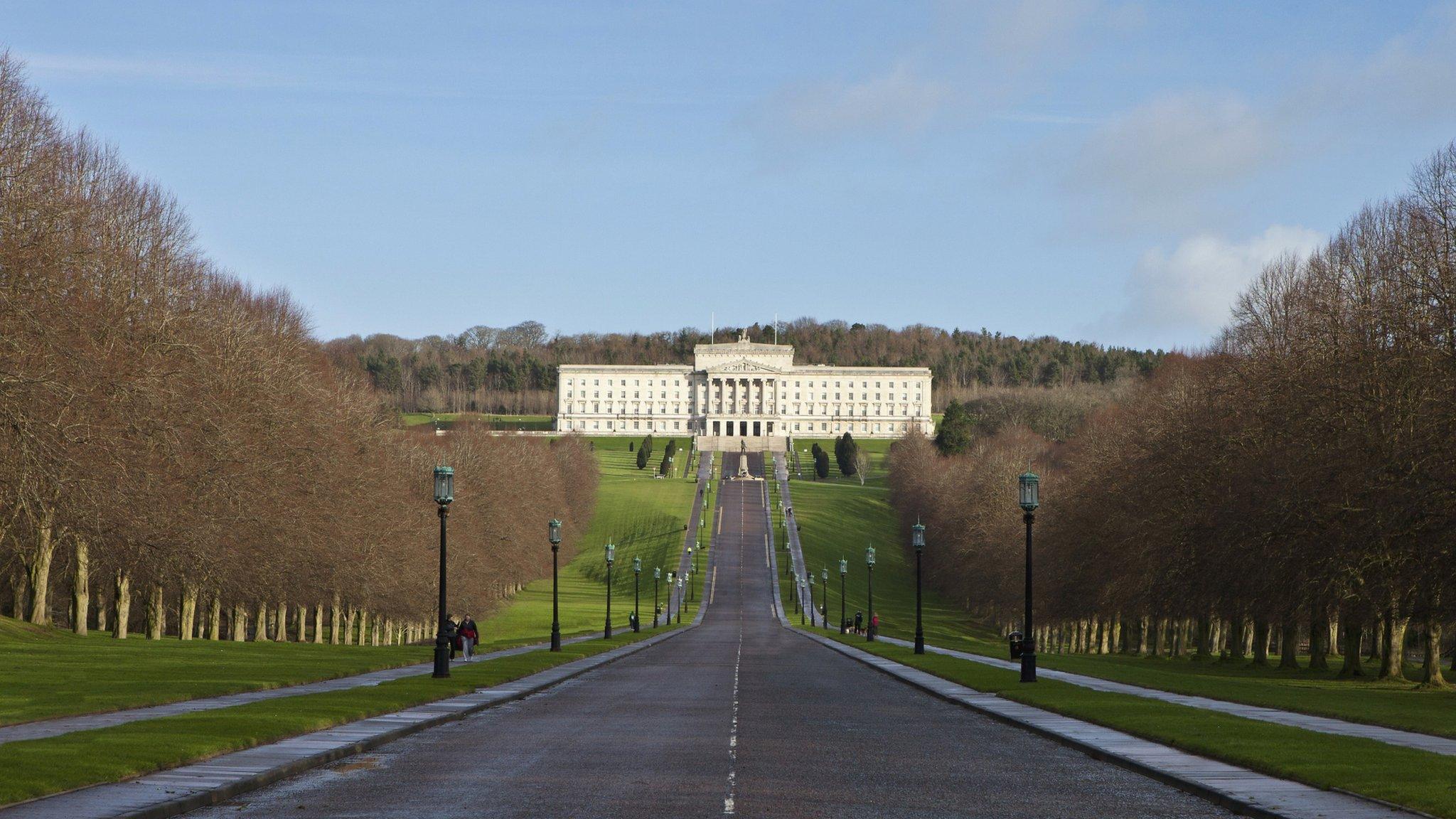BMA: Northern Ireland GPs shortage 'reaches crisis point'
- Published

Six surgeries are at high risk of collapse this year with a further 20 expected to close next year
A British Medical Association report in February 2015 said Northern Ireland needs 46 more GPs trained per year in order to meet gaps in the workforce.
So dire is the situation across the region that in July the BMA described things as being at "crisis point".
Six surgeries are at high risk of collapse this year with a further 20 expected to close next year.
The reason for this, according to the BMA, is that Northern Ireland is not training enough GPs.
The comments were made ahead of the BBC's NHS weekend which is examining how health services are being delivered across the UK, both in the community and in hospitals
The BMA's Dr Tom Black said the problem is particularly acute in rural areas.
"In south Armagh, the local health trust stepped in with emergency cover in one practice during the summer to ensure it stayed open until a permanent replacement can be found," he said.
Most practices are reporting waiting lists of up to several weeks, with a common complaint from the public being that it is rare to see a GP of your choice without having to wait up to a fortnight.
According to GPs, part of the problem is the workforce is simply too lean.
In fact, the BMA argues that consultations in Northern Ireland have increased by 63% in 10 years.
As well as arguing for more GPs to be trained, in its 2015 document 'The case for change' the BMA also argued that funding has been focused more on hospitals and said that needed to be reversed.
Seven-day working
Health officials, however, argue practices need to be run differently, for instance offering evening appointments, including at weekends. But this argument has reached stalemate with only the public losing out.
GPs in Northern Ireland say there is a need for radical change - and strong leadership. While difficult choices may not win votes, tough decisions may be necessary to ensure a better quality and more sustainable health service.
Those difficult choices may have to stretch to hospitals also in order to allow seven-day working to become more apparent.
The seven-day working debate triggered by Health Secretary Jeremy Hunt really struck a chord. Any contention was focused on the secretary of state as opposed to those health officials in Northern Ireland.
Hospital consultants, including surgeons, and union representatives all hit back, arguing that a majority of services are available at weekends, albeit reduced compared to weekdays.
While most specialities are obliged to have a consultant on call, many consultants that I spoke to said that without the support of X-rays, pharmacies and social care services in the community, their efforts to tackle caseloads at the weekend are futile.
All said, there was a strong weekend presence and many said they felt insulted by the assertion that they avoided weekend work.
Of course, staffing services over a seven-day period is a struggle.
Northern Ireland spends millions per year using locums to fill the rota. Unions argue this money would be better invested in long-term workforce planning.
A review earlier this year by Sir Liam Donaldson, England's former chief medical officer, recommended Northern Ireland should have fewer acute hospitals.
With a population of 1.8 million, there are 10 acute sites. The recommendation is four or five. As a result, too few staff are stretched over too many sites.
But politically, closing hospitals is a hot potato.
'Immense challenge'
Northern Ireland's Health Minister Simon Hamilton said he backed the secretary of state's call for seven-day working.
"Reforming and transforming health and social care in a way that puts the patient and people at the centre is an immense challenge that brings with it what can appear to be tough choices and difficult decisions," he said.
"Sometimes that will mean reconfiguring services.
"It isn't accurate to say that our health service doesn't operate 24/7, it does. But it doesn't to the same level that it does Monday to Friday, 9 to 5.
"Almost all of us will be able to recount experiences from our own lives or that of our loved ones where the standard of care received wasn't what we'd expect or, worse, wasn't maybe what would have been received on a Wednesday or a Thursday.
"In this day and age, that sort of disparity in service is simply unacceptable," he said.
In Northern Ireland all of the health unions including the RCN, RCM and the BMA, are calling for greater investment in staffing, reconfiguration of hospitals/buildings and more focus on workforce planning.
As it all comes down to resources, there is little optimism that this will happen any time soon.
- Published5 September 2015

- Published5 September 2015
- Published6 September 2015

- Published6 September 2015

- Published4 December 2014
